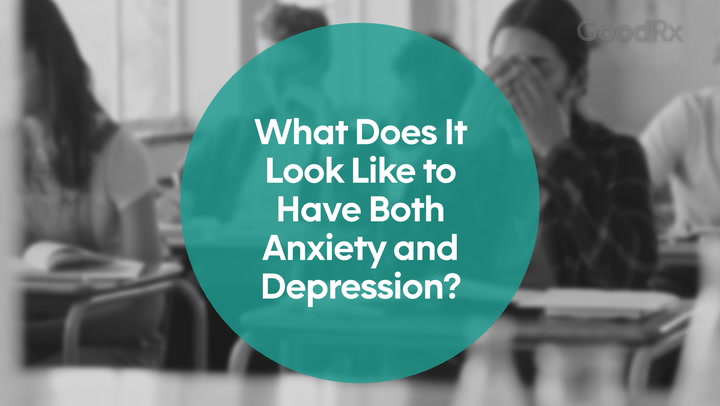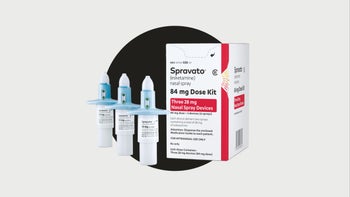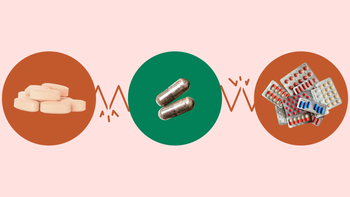
How to Get Mental Health Services and Therapy Without Insurance
Key takeaways:
The average cost of a therapy session without insurance ranges from $100 to over $200. The amount you pay depends on several factors, including the type of treatment and where you receive therapy.
If you don’t have insurance, you can still get free or low-cost mental health therapy. Check with professional organizations or ask about services at university clinics.
Ask your therapist about sliding-scale payment options, and find out if there are resources at your job.

The cost of therapy may be a concern if you don’t have insurance. But you should never avoid seeking care because you don’t have coverage. There are many resources that provide free or low-cost mental health services.
How much does therapy typically cost?
A therapy session without insurance costs anywhere from $100 to over $200 per session, according to Psychology Today. The amount you pay is based on the type of therapy and other factors. On average, expect to pay $100 to $200 for a 1-hour session in most parts of the country.
The American Psychological Association estimates it takes 15 to 20 sessions to see improvement from therapy. But most people see meaningful results over a longer period, like 20 to 30 sessions.
After the initial assessment, your therapist will make a treatment plan. For example, they may recommend 20 sessions. If each session is $150, your total cost would be $3,000. If you need additional sessions, that will increase your out-of-pocket costs.
It’s a good idea to discuss treatment length with your therapist to help you be better prepared and make the most of each session.
Find support groups: If you are dealing with depression, anxiety, or other conditions, mental health support groups can help.
Manage your mental health: Here are a few steps you can take right now to build a healthy mind.
Save on mental health: You can use an HSA or FSA to offset the cost of eligible mental healthcare expenses.
What factors affect the cost of therapy?
Without insurance, expect to pay the full cost of treatment. But your total costs will depend on many factors, including:
Treatment type: Individual, couples therapy, and group therapy may have different fees. Specialized services, like treatment with a psychiatrist, cost more.
Therapist’s expertise: A highly trained therapist with many years of experience may charge more than one with less experience.
Therapist’s specialty: Treatment with a therapist specializing in a specific or challenging mental health condition may be more expensive.
Therapist’s reputation: It may cost more to receive treatment from a highly regarded specialist who’s in demand.
Location of therapy: Treatment fees are usually higher in cities with higher living costs.
Online versus in person: Virtual therapy is often cheaper than in-person sessions.
Are there affordable therapy options without insurance?
If you don’t have insurance — or your insurance doesn’t cover the therapy you’re seeking — there are many programs that make therapy and mental health services more accessible.
Search and compare options
Check your local social services
Your state health department or county government is a good starting point. They can connect you with community-based clinics that offer free or low-cost mental health services. Visit their websites for more information.
Contact professional organizations
The National Alliance on Mental Illness (NAMI) helpline 1-800-950-6264 offers information and resources in your area. NAMI also has a crisis text line where you can connect with a trained counselor around the clock. Text “NAMI” to 741741.
You can also try contacting Mental Health America to access affordable community mental health services. Use the affiliate locator option to find a mental health professional.
Look for nonprofit options
Open Path Psychotherapy Collective is a nonprofit that helps you find therapists who provide affordable mental health services. Once you pay a $65 lifetime membership fee, you can schedule an appointment with a therapist for $40 to $70 per session. Costs vary by state and mental healthcare provider.
Ask about disability benefits
If you have a chronic or severe mental illness that makes it impossible to work, you may be eligible for disability benefits. These benefits do not automatically include healthcare coverage. But they may help you obtain coverage through Medicare, including Medicare’s mental health benefits, even if you’re not 65 years old.
Negotiate the rate
Private therapists may be willing to adjust their fees to meet your needs. Ask about discounts or sliding-scale payment options. Sliding scale is a pricing structure in which your cost is based on your income. So if you’re struggling financially, your session costs might be significantly lower.
Read more like this
Explore these related articles, suggested for readers like you.
In some situations, you may be able to do shorter sessions. Ask your therapist if a 30-minute session at half the cost is appropriate for you.
Finding affordable therapy online
Online therapy is a great option for some people. Plus, it’s often more affordable. Sign up for a free GoodRx Care account, and you will be able to search for affordable treatment options in your area. You can find a provider and schedule an appointment in minutes. Appointments start at $49. There’s no waiting room, no paperwork, and no insurance required.
Can you get therapy for free?
If you are looking for free therapy, here are a few options:
Consider group therapy
Group therapy offers a great way to access licensed professionals without paying the full fee of an individual session. Some mental health support groups are free.
Seek services at a university clinic
University hospitals and medical schools often have programs that give you access to therapists in training for free or at a low cost. Search a college’s website for their social work, psychology, or psychiatry department, which can offer more information.
Some schools also research specific mental health diagnoses. If a school near you is researching your diagnosis, you can enroll in a study and get free care like therapy and medication.
Explore employee assistance programs
Some employers provide access to free mental health benefits through an employee assistance program (EAP). Ask your human resources department about your EAP benefits. There is usually a limit to the amount of free EAP benefits an employee can receive each year. If you reach your limit, ask about discounted out-of-pocket rates to continue your care with a mental health care professional.
Contact nonprofit organizations
Another option for free and low-cost mental health clinics is the National Association of Free & Charitable Clinics. Enter your ZIP code on their site to find clinics near you that offer mental health services.
Should I consider Medicaid for assistance with mental health services?
Yes. If you qualify for Medicaid, you’ll have access to some mental health services and behavioral treatment options, including:
Counseling
Inpatient hospitalization
Outpatient services
Physician services
Substance use disorder treatment
Each state has its own Medicaid program. This means that eligibility and benefits can vary widely. Some states will offer many services, including:
Caregiver support
Medication-assisted treatment
Prescription medications
Residential treatment
Additional resources
Below are some other organizations that can connect you with free or low-cost mental health help.
Organization | How to contact |
Substance Abuse and Mental Health Services Administration | Call their national helpline at 1-800-662-4357, or contact them online at www.samhsa.gov. |
Anxiety & Depression Association of America (ADAA) | Visit ADAA’s website to find a therapist. |
Health Resources & Services Administration (HRSA) | Find therapists who offer affordable and sliding-fee payment options by using HRSA’s website. |
Depression and Bipolar Support Alliance | Get information on finding a mental health provider on their website, or call 1-800-826-3632. |
Locate mental health resources on their site, or call 211. |
The bottom line
Mental health is an important part of our well-being. Access to mental health care helps promote a better quality of life. If you’re uninsured, there are many ways to access free or affordable therapy. Don’t avoid seeking mental health treatment because you think you can’t afford it.
Why trust our experts?


References
American Psychological Association. (2017). How long will it take for treatment to work? Clinical Practice Guideline for the Treatment of Posttraumatic Stress Disorder.
Miller, D. (2018). 4 ways teens can access therapy without health insurance. National Alliance on Mental Illness.
Open Path Psychotherapy Collective. (n.d.). About us.
Open Path Psychotherapy Collective. (n.d.). Client information.
Psychology Today. (n.d.). Cost and insurance coverage.
Social Security Administration. (n.d.). Disability.
Social Security Administration. (n.d.). Medicare information.
For additional resources or to connect with mental health services in your area, call SAMHSA’s National Helpline at 1-800-662-4357. For immediate assistance, call the National Suicide Prevention Lifeline at 988, or text HOME to 741-741 to reach the Crisis Text Line.



























